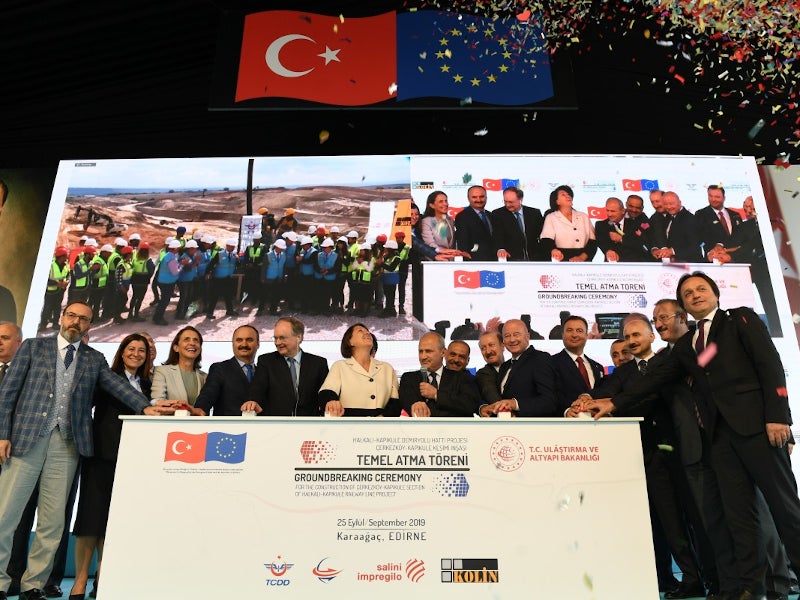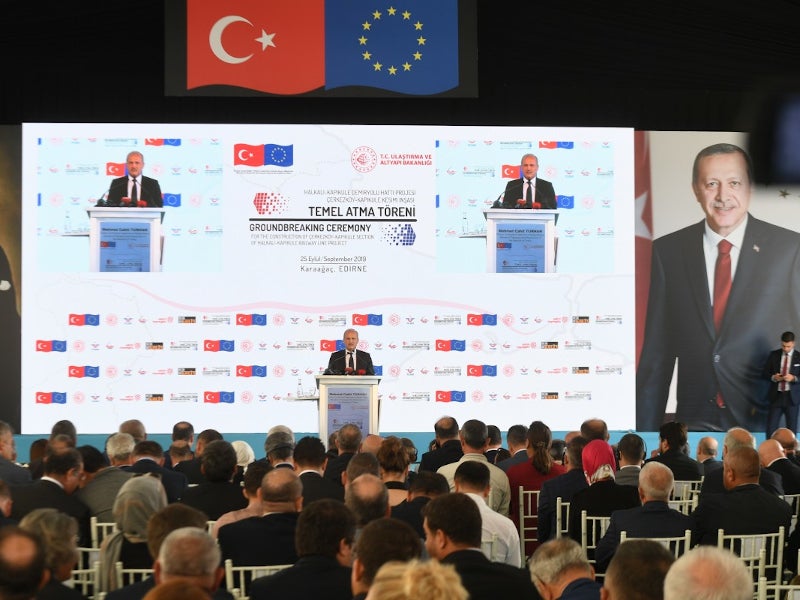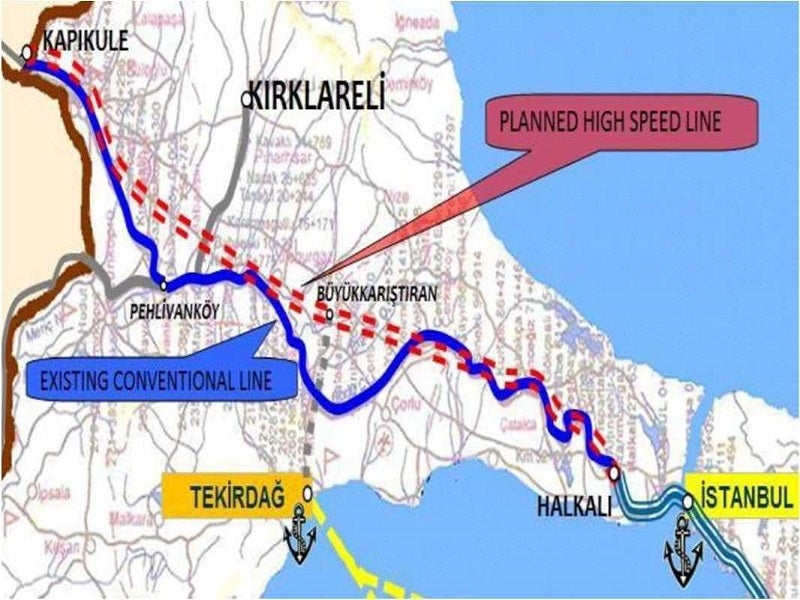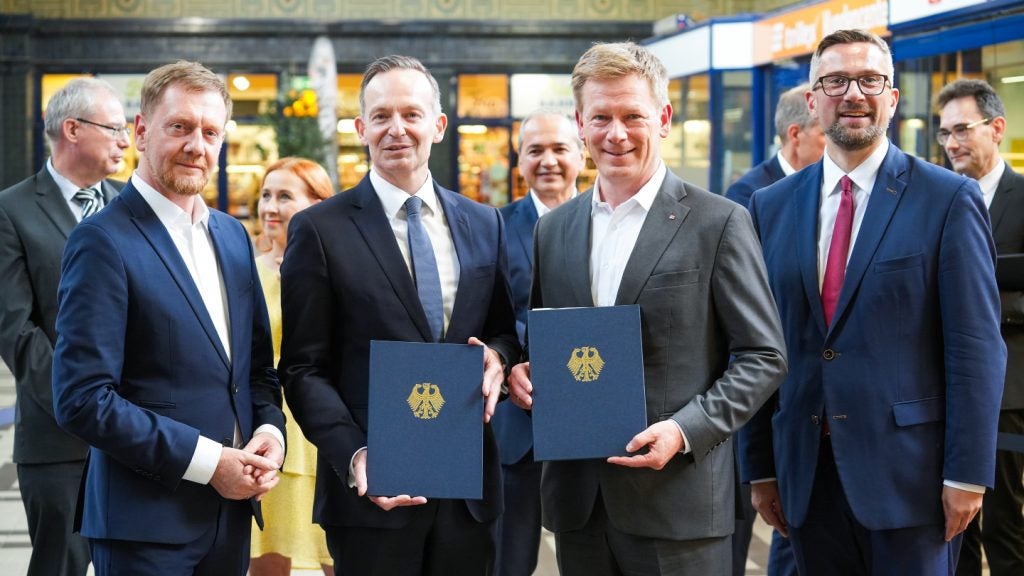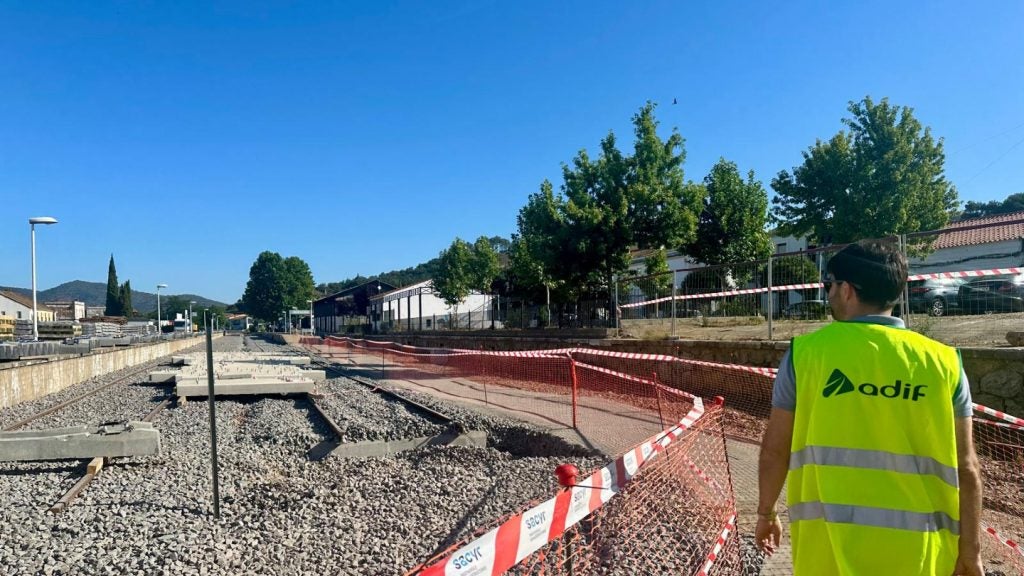Halkali-Kapikule project is a 231km-long rail line being developed in Turkey to connect the country’s railway network with the Trans-European Transport Network (TEN-T) through Bulgaria.
The TEN-T is a planned network of roads, railway lines, inland waterways, maritime shipping routes, ports, railroad terminals and airports to enable seamless movement of people and goods in Europe.
The project is being developed by the Directorate General of Turkish State Railways. It will be a major railway route, linking the metropolitan area of Istanbul to the Turkish-Bulgarian border. It will serve ten million people and support the transportation of 3.6 million tonnes of cargo.
The rail link will create a high-speed train track with dual-line, enabling passenger and freight trains to run at a speed of 200km/h.
The groundbreaking event was held in September 2019 with project completion expected by 2022.
Halkali-Kapikule railway project details
The Halkali-Kapikule railway line will form a part of the Orient/East-Med Corridor, which provides connections with ports of the Baltic, Black, North and Mediterranean seas. It will include three sections, Çerkezköy-Kapikule, Halkali-Ispartakule and Ispartakule-Çerkezköy.
The entire line will feature six stations, two viaducts, 16 railway bridges and ten cut-and-cover tunnels. It will also include 59 overpasses, 59 underpasses and 193 vents, along with four underpasses and six overpasses to facilitate animal crossing.
The double-track line will be electrified and will have the latest signalling systems compatible with the European Train Control System (ERTMS) Level 1.
The Cerkezkoy-Kapikule line will include a 142.5km-long double track and 10.36km-long triple track sections. It will start at Çerkezköy and end at Kapikule at the border with Bulgaria. The Ispartakule-Çerkezkoy section will be 68km-long and will have nine bridges, two viaducts and two tunnels.
The 76km-long Halkali-Ispartakule section (phase 2), which will end just before the Cerkezkoy station, will also see the modification of existing infrastructure, including stations and connections to the existing railway line.
Benefits of Halkali-Kapikule railway project
The project is estimated to generate economic benefits worth €1.6bn ($1.8bn) for the consumers and producers. It will create an economical and reliable transport service to support international import and export activities.
The route will provide a safer transport option for commuters in the urban area of Istanbul and decrease carbon emissions.
The project will enhance rail connectivity between Turkey and the European Union (EU), as well as the EU and Central Asia. The Halkali-Ispartakule railway line, along with other planned projects, will provide the missing rail links while also supporting the development of larger trade corridor between the EU and Turkey and from Turkey onto the Middle East, Caucasus and Central Asia.
The line will also form an important part of the Iron Silk Road from London to Beijing.
Financing for Halkali-Kapikule railway project
The project will receive a €275m ($301.8m) grant from the EU, making it the single-largest EU investment project implemented in Turkey. The project will also receive national funds, matching the EU contribution. Phase 2 of the project is estimated to cost €663.5m ($746.8m).
The European Bank for Reconstruction and Development (EBRD) provided a sovereign loan of up to €100m ($112.5m) for this phase. The second phase will be co-financed by the Asian Infrastructure Investment Bank (AIIB).
Contractors involved
Salini Impregilo was awarded a €530m ($593m) contract for the construction of the high-speed project. The company will have a 50.01% stake in a joint venture with Turkish builder Kolin İnşaat Turizm after the completion of one year of work on the project.
A consortium led by TPF was awarded a €23.2m ($26m) contract for construction supervision of the Çerkezköy-Kapikule section. As part of the contract, TPF will act as the FIDIC engineer and will also undertake a design component of three stations and the track between Kapikule station and the Bulgarian border.
SU-YAPI was contracted for final design, and preparation of technical specifications and tender documents. AETS assisted EU in the procurement and monitoring of works and service contracts for the project.

